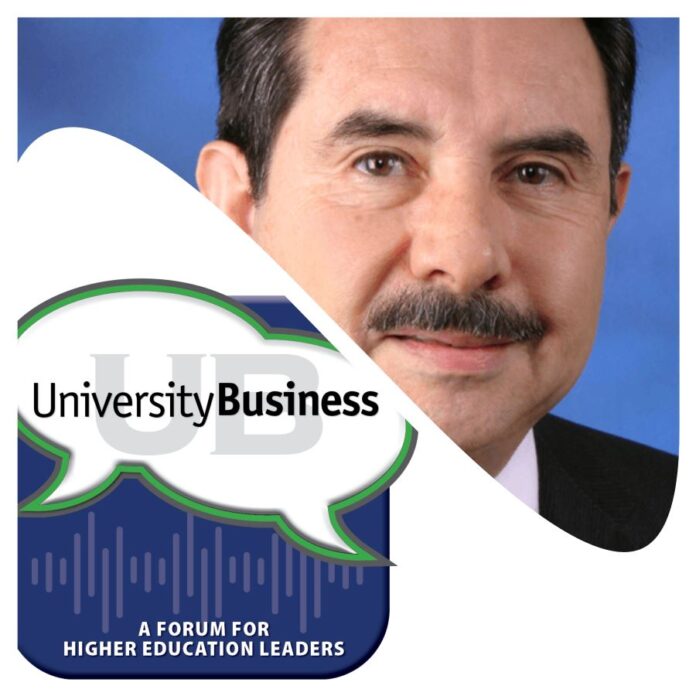A wave of initiatives has sprouted across the U.S. to serve the country’s rapidly growing Hispanic workforce. A key pillar is the over 600 Hispanic-serving institutions, known as HSIs, working to fuel Hispanic students’ ambitions.
“HSIs are vital to the future competitiveness of the workforce in the country and our global economy,” Dr. Antonio Flores, president of the Hispanic Association of Colleges and Universities, says on this episode of The University Business Podcast. “The public needs to understand how important HSIs are for the future well-being of the nation.”
Between 2020 and 2030, the Department of Labor projects 78% of all new U.S. workers will be Hispanic, making up one out of every five workers by the end of the decade. But without proper student support measures, this emerging population will lack the appropriate guidance to reach the highest echelons of the U.S. economy, Flores says.
Many of today’s Hispanic students who hail from low-income, immigrant families are first-generation and working around the clock. With multiple priorities, like “working too much,” it’s no wonder why Flores surmises that, “[Hispanic students who earn] an associate degree is like getting a Ph.D. for others.”
More from UB: How toxic incentives are fueling an ‘epidemic’ of cheating in scholarly research
Luckily, the Hispanic Association of Colleges and Universities provides HSIs with technical assistance to secure state and federal grants. It also guides schools in creating co-curricular activities that show institutions value the “culture and language” of their Hispanic students.
But in order to get Hispanic students into specialized fields, K12 and higher education need to improve their talent pipelines, Flores says. He has high hopes for one Congressional bill that, if passed, would authorize $150 million in Title V funds toward assisting eligible students through their transition from high school to higher ed.
“They really need some help because we need to pump up the number of Hispanic students with a Ph.D. to have that talent pool of potential faculty members at those institutions.”
You can listen to this episode at any time on Spotify, Amazon Music, Apple Podcasts, Podbean or down below.


